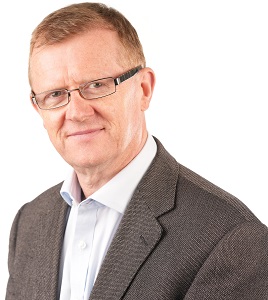The case for Medium Duration Energy Storage – and some varieties thereof
Seamus Garvey, Neville Rieger Professor of Dynamics, University of Nottingham
- Start Wednesday 15 Jan 2025 4:00pm
- Finish Wednesday 15 Jan 2025 5:30pm
- Venue Atmosphere Room - ECI OUCE
- Postcode OX1 3QY
- Download event slides - PDF (25.03 MB)
- Watch seminar recording (external site)

A Net Zero UK energy system is both achievable and affordable and many different solutions are possible. In all cases, substantially increased electrification is central. The biggest remaining challenges and uncertainties relate to how we will reconcile the supply of electricity with demand for it. Energy storage will likely provide most of the required flexibility and it is beyond doubt that the UK should already be starting to implement very large storage facilities for hydrogen to cater for variability over timescales of months or even tens of months. We already have a large queue for battery energy storage projects, and it is very likely that by combining these battery banks with some large hydrogen stores, we could operate an affordable Net Zero system. However, we can do better.
This talk will first look at the main timescales that will be associated with energy storage in the future. It will be shown that most (>90%) of the energy coming out of storage in our future system will emerge in periods of continuous discharge between 4 hours and 200 hours in length. The >4hr periods are stretching the viability of fixed-charge batteries and the <200hr periods are not really well suited to using hydrogen for flexibility because the low roundtrip efficiency associated with hydrogen motivates us to avoid passing too much energy through this channel.
Enter MDES – Medium Duration Energy Storage. Under assumptions that are very credible, including an optimal mix of MDES facilities into the mix can reduce overall system costs by as much as 10% relative to the least expensive solution not embracing any MDES. We will canter through some of the established/emerging MDES technologies and comment on their respective likely niches. The seminar will end by focusing on one very specific MDES technology called WindTP (for Wind-driven Thermal Pumping) that integrates energy storage with wind turbines. In WindTP, energy is passed into storage and recovered from storage before we generate electricity. The speaker will explain why roughly 35% of the wind turbine fleet in a cost-optimal Net Zero UK should probably include integrated storage.

